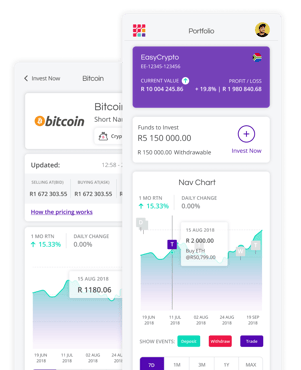Bitcoin's Wattage Worth
-3.png)
The conversation around Bitcoin and its energy consumption has become a focal point of debate. As Bitcoin grows in prominence, possibly as a future contender for a global reserve currency, understanding its relationship with electricity is crucial. This article aims to explore the nuances of Bitcoin's energy usage, address common misconceptions, and argue why its substantial electricity consumption might not only be justified but beneficial.
Bitcoin Mining: A Power-Intensive Process
Bitcoin mining, the process through which new Bitcoins are created and transactions are verified, is inherently energy-intensive. This is due to the cryptographic puzzles that miners must solve to add blocks to the blockchain, a task that requires substantial computational power. The energy consumption of Bitcoin mining has often been compared to the power usage of entire countries, sparking concerns about its environmental impact.
The Concept of Excess Electricity Utilisation
A key point often overlooked in the discussion about Bitcoin's energy consumption is the utilisation of excess electricity. In many regions, particularly those with renewable energy sources like hydroelectric or solar power, there can be a surplus of electricity that is not immediately consumed or easily stored. Bitcoin mining can capitalise on this excess, effectively monetising energy that would otherwise go to waste. A growing movement of crypto advocates have hence started referring to Bitcoin as "Monetised Energy".
Encryption and Security: The Pillars of Bitcoin's Energy Use
The high energy consumption of Bitcoin is tied directly to its security model. The proof-of-work algorithm, which underpins the mining process, is designed to be energy-intensive to ensure the security and integrity of the Bitcoin network. This system of encryption and decentralised verification is what gives Bitcoin its robustness against fraud and attacks, arguably making the high energy cost a necessary trade-off for unparalleled security in the digital currency space.
Addressing Common Misconceptions
Critics often point to Bitcoin's energy consumption as inherently harmful, but this perspective fails to consider the type of energy used and the broader context of global energy consumption. Bitcoin mining increasingly relies on renewable energy sources, and compared to the energy usage of traditional banking systems or the gold industry, Bitcoin's footprint is often misunderstood or overstated.
The Bigger Picture: Bitcoin as a Global Reserve Currency
Looking at the bigger picture, the energy consumption of Bitcoin should be weighed against its potential to serve as a global reserve currency. In a world where financial systems are often unstable and currencies are subject to the whims of policy and politics, Bitcoin offers a decentralised alternative. The energy used in securing and maintaining the Bitcoin network could be a small price to pay for a currency that is borderless, resistant to censorship, and offers financial inclusion on a global scale.
Bitcoin's energy consumption, while significant, is a complex issue that needs to be understood in its entirety. The use of excess electricity, the necessity of high energy use for security, and the potential for Bitcoin to be a global reserve currency all contribute to a nuanced understanding. As Bitcoin continues to evolve, so too will the conversations around its energy use, always bearing in mind the transformative potential of this groundbreaking digital currency. Perhaps citizens of the future will embrace the energy requirements of Bitcoin, marking it as a proxy for economic prosperity.
Fun fact: Did you know that on average, it costs approximately R800 000 to mine a single Bitcoin (depending on the country and electricity source). Additionally, Bitcoin's estimated annual electricity consumption is staggering, closely rivaling the energy use of entire countries, and is estimated to be around 121.36 terawatt-hours per year. That's more electricity than many countries consume in the same timeframe!
To know more about diversifying your Bitcoin investments, check out our available crypto bundles.
Related posts
Browse tags
- All
- Easy Crypto (19)
- cryptocurrency (9)
- EC10 (4)
- Market News & Events (3)
- EC10 Bundle (2)
- Education (2)
- Volatility (2)
- BOME (1)
- BONK (1)
- BTC (1)
- Blockchain (1)
- Crypto Jargon (1)
- DOGE (1)
- Ethereum (1)
- FLOKI (1)
- How to fund my account (1)
- PEPE (1)
- SARS (1)
- SHIB (1)
- Solana (1)
- Terra (1)
- Tokenisation (1)
- ai (1)
- tax (1) View All View Less
